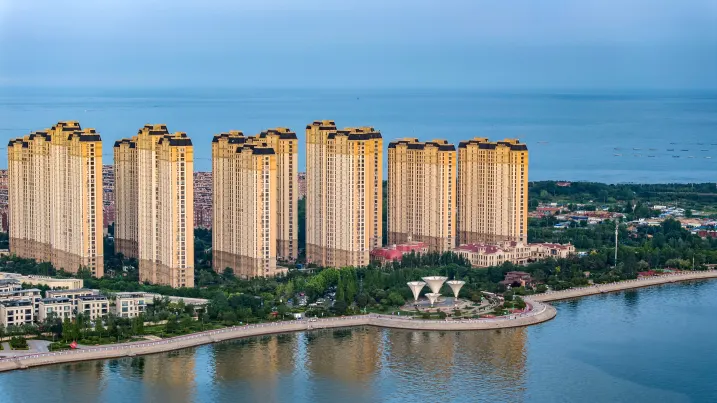China’s Upcoming Third Plenum Meeting: Why Real Estate Won’t Be the Main Focus
The much-anticipated Third Plenum meeting of the Communist Party of China, scheduled for Monday to Thursday, is set to be a pivotal event in the country’s policy landscape. This major gathering, which typically occurs only once every five years, brings together the top members of the ruling party to discuss and shape the nation’s future direction. Originally expected to be held last fall, the meeting was delayed, adding to the anticipation and speculation about its agenda.
Delays and Expectations
The delay in holding the Third Plenum has fueled widespread speculation about the issues that will be addressed. Traditionally, this meeting is a platform for significant policy announcements and strategic shifts. The current economic climate, marked by challenges in the real estate sector and broader fiscal concerns, has only heightened the focus on what the party leaders will prioritize.
Shifting Focus from Real Estate
Real estate has long been a cornerstone of China’s economic growth, with the government relying heavily on land sales for fiscal revenue. However, the plummeting land market has put this model under severe strain. Larry Hu, chief China economist at Macquarie, highlighted this issue in an email to CNBC, stating, “The key challenge faced by Beijing is to find an alternative fiscal system, as the current one, which relies heavily on land sales, is under severe pressure due to the plunging land market.”
Given this context, it is unlikely that real estate will be the main focus of the upcoming plenum. Instead, the party leaders are expected to address more pressing structural challenges and explore alternative fiscal strategies to sustain economic stability and growth.
Economic Diversification and Fiscal Reform
The need for economic diversification and fiscal reform is urgent. With the real estate sector underperforming, the government must find new revenue sources and stimulate other sectors of the economy. The plenum will likely highlight initiatives aimed at boosting innovation, technology, and domestic consumption. These areas are seen as crucial for driving sustainable growth and reducing dependency on volatile sectors like real estate.
Addressing Structural Challenges
China faces several structural challenges that require immediate attention. These include an aging population, rising debt levels, and the need for environmental sustainability. The plenum is expected to introduce policies that address these long-term issues, promoting economic resilience and social stability. Strategies may include reforms in healthcare, pension systems, and investments in green technologies.
International Relations and Trade
Amid global economic uncertainties and geopolitical tensions, China’s approach to international relations and trade will also be a critical topic at the plenum. The country’s leaders are likely to discuss strategies for navigating the complex global landscape, enhancing trade partnerships, and reducing reliance on any single market. This focus on diversification in international trade could provide new opportunities for economic growth and stability.
Enhancing Domestic Consumption
Another anticipated focus of the plenum is the enhancement of domestic consumption. As global markets fluctuate, boosting internal demand becomes crucial for economic stability. Policies aimed at increasing consumer confidence, improving income distribution, and supporting small and medium-sized enterprises (SMEs) could be key components of the discussions.
Conclusion
The upcoming Third Plenum meeting of the Communist Party of China is set to address some of the most critical economic and structural challenges facing the country. While real estate has traditionally been a focal point, the current market pressures suggest a shift in priorities. The meeting is expected to emphasize fiscal reform, economic diversification, and long-term structural solutions. By addressing these areas, China aims to build a more resilient and sustainable economic future.
As the plenum unfolds, the world will be watching closely to see how China navigates these challenges and what new policies will emerge to guide the country’s development in the coming years. The outcomes of this meeting could have significant implications, not just for China, but for the global economy as well.

